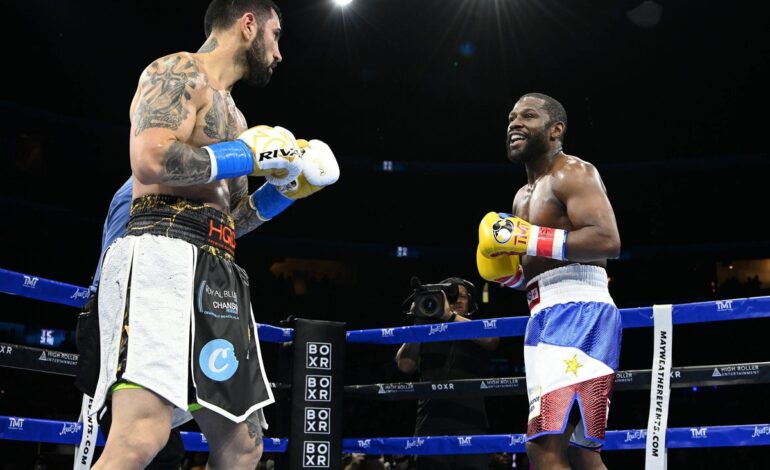Vegas Auto Group Fires Back as Floyd Mayweather Faces $1.25M Maybach Suit

Zoe Bennett here, your go-to desk boss for sharp, fact‑driven gossip with a newsroom’s backbone. A journalistic expert providing a well‑researched, analytical take with key insights and data. The latest bombshell centers on Floyd Mayweather and a high‑end Maybach that has everyone in Las Vegas talking. Vegas Auto Group, the Sin City dealership at the heart of the dispute, contends Mayweather stiffed them on a $1.25 million bill for a rare 2018 Mercedes Maybach G650 Landaulet, a vehicle so coveted that it reads like a moving exhibit of luxury and excess. The drama went mainstream after TMZ Sports broadcasted Mayweather’s suit against Vegas Auto Group, filed in Nevada, claiming the boxer tried to return the car while arguing over its condition. The dealership, meanwhile, is drawing a hard line, presenting documents that assert a confession of judgment from June 2025 in which Mayweather allegedly acknowledged owing roughly $1.2 million and accepted a settlement, then allegedly failed to pay when an extension was granted.
The legal volley didn’t stop there. Vegas Auto Group has also filed a separate court filing titled a Confession of Judgment dated July 4, signaling a robust counterattack. Their attorney, Ted Anastasiou, has framed Mayweather’s lawsuit as an attempt to rewrite a debt that is clearly evidenced by signed paperwork, disclosures, and receipts. “Contracts matter whether you’re 50–0 or 0–50,” Anastasiou declared, underscoring the dispute’s contractual backbone rather than any alleged misrepresentation about car condition. The public documents paint a picture of a dispute where Mayweather appears to argue about the post‑sale handling and the car’s state, while the dealership emphasizes that the obligations were acknowledged in writing and that the money was not paid after agreed extensions.
What makes this case gripping beyond the price tag is the public nature of a modern sports icon tangled in a commercial dispute that hinges on paperwork and payment timelines. Mayweather’s team argues the legal actions question the fairness of the transaction, while Vegas Auto Group asserts it merely seeks the cash that was contractually due. The public record suggests a timeline: a signed confession of judgment in June 2025, a subsequent extension request granted by the dealer, and continued nonpayment that led to the lawsuit and a parallel court motion to dismiss Mayweather’s suit. The stakes aren’t just about one car; they’re about the enforceability of high‑value contracts in a world where the rich and famous rely on precise, enforceable terms to avoid becoming headline fodder for a different kind of critique.
As the case progresses, several questions loom: Will the two sides settle behind closed doors or keep the public court filings marching forward? How will Nevada courts weigh a celebrated athlete’s admission of debt against claims of disputed terms or vehicle condition? And what precedent could this set for luxury auto transactions in the future, especially when large sums and signature documents are in play?
For now, the public record remains the primary compass. Mayweather’s representative has yet to publicly pivot on the specifics beyond the courtroom dynamics, while Vegas Auto Group doubles down on the documented obligations and the consequences of nonpayment. In a landscape where celebrities navigate branding, endorsements, and image management, this case highlights a different currency: the legal currency of contracts, receipts, and the kind of accountability that can weather any PR storm. What to watch next is whether the courtroom will reveal a negotiated resolution, or if the saga will pivot toward further disclosures and more detailed disclosures about the car, its condition, and the true terms of the sale.
Sources: Celebrity Storm and TMZ Sports, Vegas Auto Group press statements, Nevada court filings
Attribution: Creative Commons Licensed (GO)
Attribution: Creative Commons Licensed (GO)




